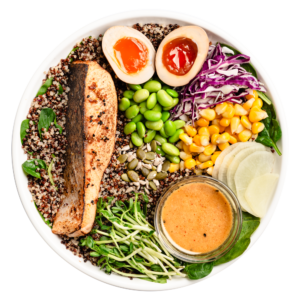Heart health is a vital aspect of overall well-being, and recent research highlights the role of dietary nitrates in promoting cardiovascular function. These naturally occurring compounds found in various vegetables, particularly leafy greens and root vegetables, can significantly impact blood pressure, improve exercise performance, and enhance vascular health. Understanding how dietary nitrates work and incorporating them into your diet can lead to substantial heart health benefits.
What Are Dietary Nitrates?
Dietary nitrates are compounds made up of nitrogen and oxygen, primarily found in foods like beets, spinach, arugula, lettuce, and celery. When consumed, nitrates convert into nitrites in the mouth and then further into nitric oxide in the body. Nitric oxide plays a crucial role in cardiovascular health by relaxing and widening blood vessels, which leads to improved blood flow and lower blood pressure.
The Impact on Blood Pressure
High blood pressure is a significant risk factor for heart disease. Research shows that dietary nitrates can effectively lower blood pressure. A study published in the Journal of Nutrition found that participants who consumed beetroot juice, rich in dietary nitrates, experienced a significant reduction in blood pressure compared to those who did not. The mechanism behind this effect lies in the conversion of nitrates to nitric oxide, which dilates blood vessels and enhances blood flow. By incorporating nitrate-rich foods into your daily meals, you can take proactive steps toward managing your blood pressure.
Enhancing Exercise Performance
In addition to their effects on blood pressure, dietary nitrates also improve exercise performance. Athletes and fitness enthusiasts often turn to nitrate-rich foods to enhance endurance and reduce the oxygen cost of physical activity. A review in the Journal of Applied Physiology concluded that nitrates could increase exercise performance by improving muscle efficiency and reducing fatigue. This means that by consuming foods like beet juice or arugula before workouts, you can push your limits, train harder, and recover faster, all of which contribute to better heart health over time.
Promoting Vascular Health
Incorporating dietary nitrates into your diet not only benefits your blood pressure and exercise performance but also promotes overall vascular health. Nitric oxide plays a vital role in maintaining the health of blood vessels by preventing platelet aggregation and reducing inflammation. By supporting the endothelium (the inner lining of blood vessels), dietary nitrates help maintain proper vascular function and reduce the risk of atherosclerosis, a condition where arteries become narrowed or blocked.
Food Sources of Dietary Nitrates
To harness the heart-healthy benefits of dietary nitrates, focus on incorporating a variety of nitrate-rich foods into your meals. Here are some excellent sources:
- Beetroot: Beets are one of the richest sources of dietary nitrates. They can be enjoyed roasted, pickled, or as a juice.
- Leafy Greens: Spinach, kale, and arugula are not only nutritious but also high in nitrates. Add these greens to salads, smoothies, or sauté them as a side dish.
- Radishes: These crunchy vegetables are excellent for adding a peppery flavor to salads and sandwiches while providing a good source of nitrates.
- Celery: Celery is a versatile vegetable that can be added to soups, salads, or enjoyed as a snack with hummus.
- Lettuce: Romaine and butterhead lettuce varieties contain nitrates, making them a great base for salads.
Tips for Maximizing Nitrate Intake
To maximize the health benefits of dietary nitrates, consider the following tips:
- Eat Fresh: Freshly prepared vegetables contain higher nitrate levels compared to processed ones. Aim for whole, minimally processed foods to ensure you’re getting the most nitrates.
- Combine with Vitamin C: Foods rich in vitamin C, like citrus fruits, strawberries, and bell peppers, can enhance the conversion of nitrates to nitric oxide. Include these fruits and vegetables alongside your nitrate-rich meals.
- Cook Wisely: Cooking methods can affect nitrate levels. Steaming or lightly cooking vegetables may preserve their nitrate content better than boiling.
- Stay Hydrated: Proper hydration supports the body’s ability to utilize nitric oxide effectively. Drink plenty of water, especially before and after exercise.
Harnessing the benefits of dietary nitrates can significantly contribute to heart health. By incorporating nitrate-rich foods into your diet, you can help lower blood pressure, enhance exercise performance, and promote vascular health. As you make these changes, remember to pair these foods with a balanced diet and healthy lifestyle choices. Your heart will thank you for it!




